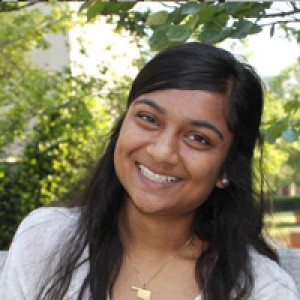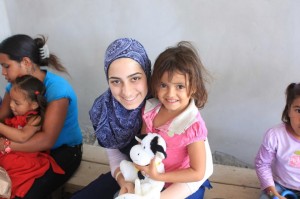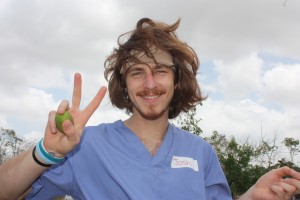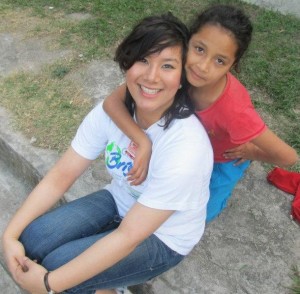Each week we bring you the story and perspective of one of our outstanding Brigaders. This week, meet Ganga Moorthy, a Medical Brigades volunteer from the University of Oklahoma, who recently participated in a Medical Brigade in Ghana.
——
I remember the butterflies I felt as we boarded our flight to Honduras from Miami for our first brigade two years ago. I was nervous for many reasons: I was in charge of getting 15 people to a developing country, I didn’t know how effective we would be, and most of all I didn’t know what lay ahead. As soon as we landed in Tegucigalpa, I knew that Global Brigades was an organization that I would remain loyal to and that would change my views of global health and development. Three brigades, two countries, and one malaria scare later, I am still committed to GB and know that my career goals and personal development have been significantly impacted by my experiences.
Perhaps the greatest thing about Global Brigades has been getting to immerse myself in the culture of the people we serve. The communities truly welcome you as one of their own and the relationships that are formed allow GB to integrate into part of these 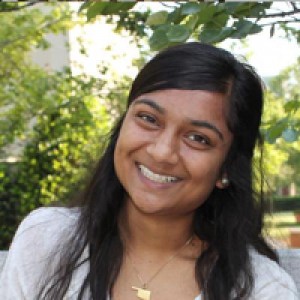 individuals’ lives rather than serve as outsiders. This adds to the model of sustainable development and makes the work even more meaningful. During our trip to Ghana this January, I saw first hand how GB’s model works to improve communities wholly and engages work on multiple, connected development issues. Understanding and connecting these issues to specific individuals and taking into consideration their traditions, values, and needs allowed us to engage the people of our communities to take ownership of their health and have them join us to improve their lives. The greatest lesson I learned was that development must allow people to help themselves. Without empowering people and showing them that they can take measures to improve their own lives, development fails to be sustainable and GB does an incredible job of sharing this vision with students.
individuals’ lives rather than serve as outsiders. This adds to the model of sustainable development and makes the work even more meaningful. During our trip to Ghana this January, I saw first hand how GB’s model works to improve communities wholly and engages work on multiple, connected development issues. Understanding and connecting these issues to specific individuals and taking into consideration their traditions, values, and needs allowed us to engage the people of our communities to take ownership of their health and have them join us to improve their lives. The greatest lesson I learned was that development must allow people to help themselves. Without empowering people and showing them that they can take measures to improve their own lives, development fails to be sustainable and GB does an incredible job of sharing this vision with students.
Thinking about our time in Ghana, I cannot think of a more formative experience during my educational career. The knowledge we gained was more than medical, we learned about a beautiful country and it’s people, development and sustainability, and most important of all: that young people can make a change. We were challenged and pushed to be better medical professionals and also better people. One specific moment stands out in my mind; during our public health day we had the opportunity to discuss maternal health with a local midwife in the community of Ekotsi. Before we knew it, we had spent four hours with this woman discussing the magic of birth, her struggles as a local birth attendant, and being captivated by her story. We left with a better understanding of the childbirth process and also with empathy, patience, and wonder. Hearing how similar our lives were and how medicine can transcend all cross-cultural boundaries was incredible and a lesson I will never forget from our trip. Furthermore, learning about the other factors that influence health and seeing them firsthand helped give us a more nuanced understanding of public health and development. The Global Medical Brigades program in Ghana and Honduras are truly amazing and offered me one of the best experiences of my life. Led by passionate individuals who are able to inspire other with their words and actions, we were able to leave these countries forever changed and committed wholeheartedly to being engaged and passionate citizens of the world.

